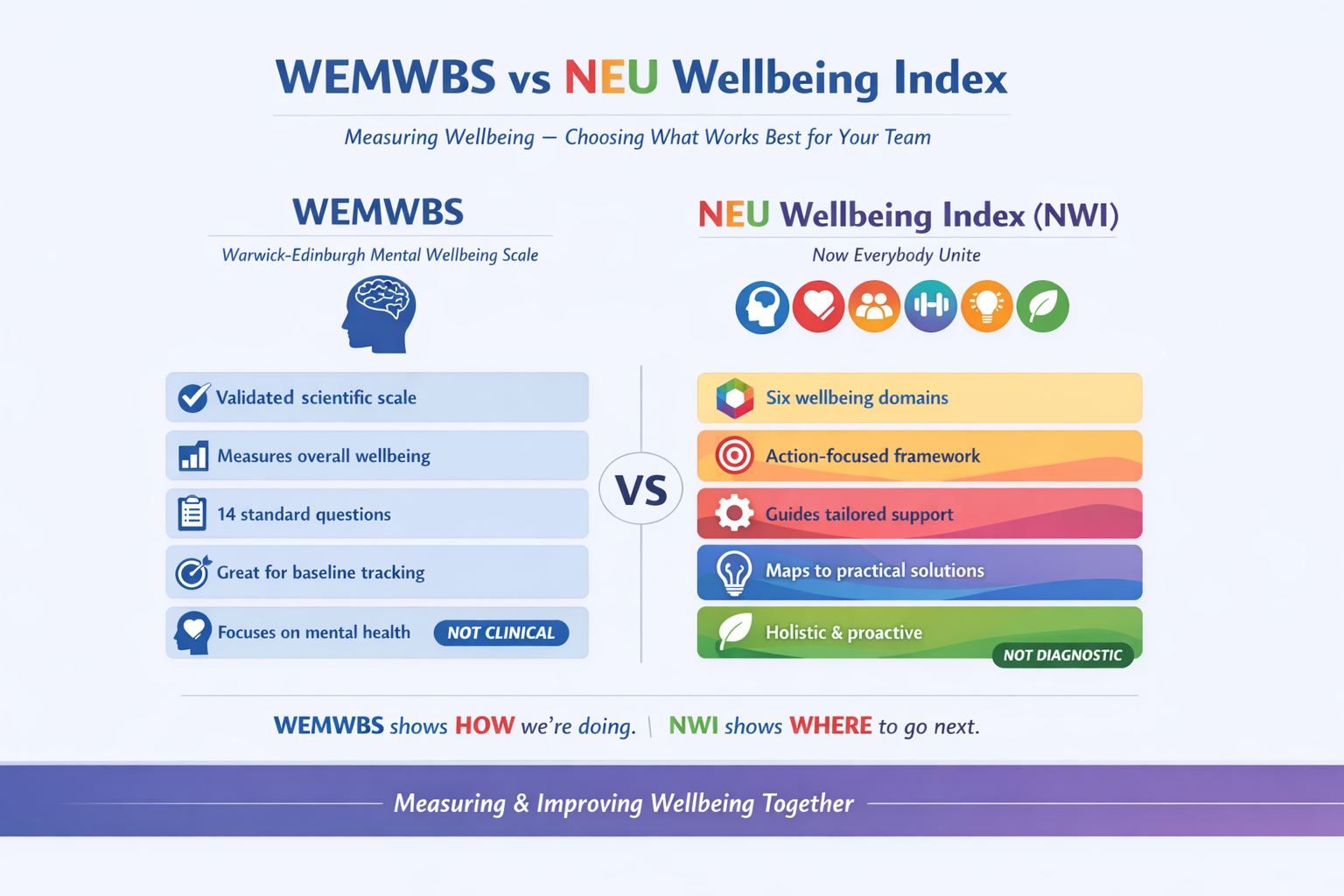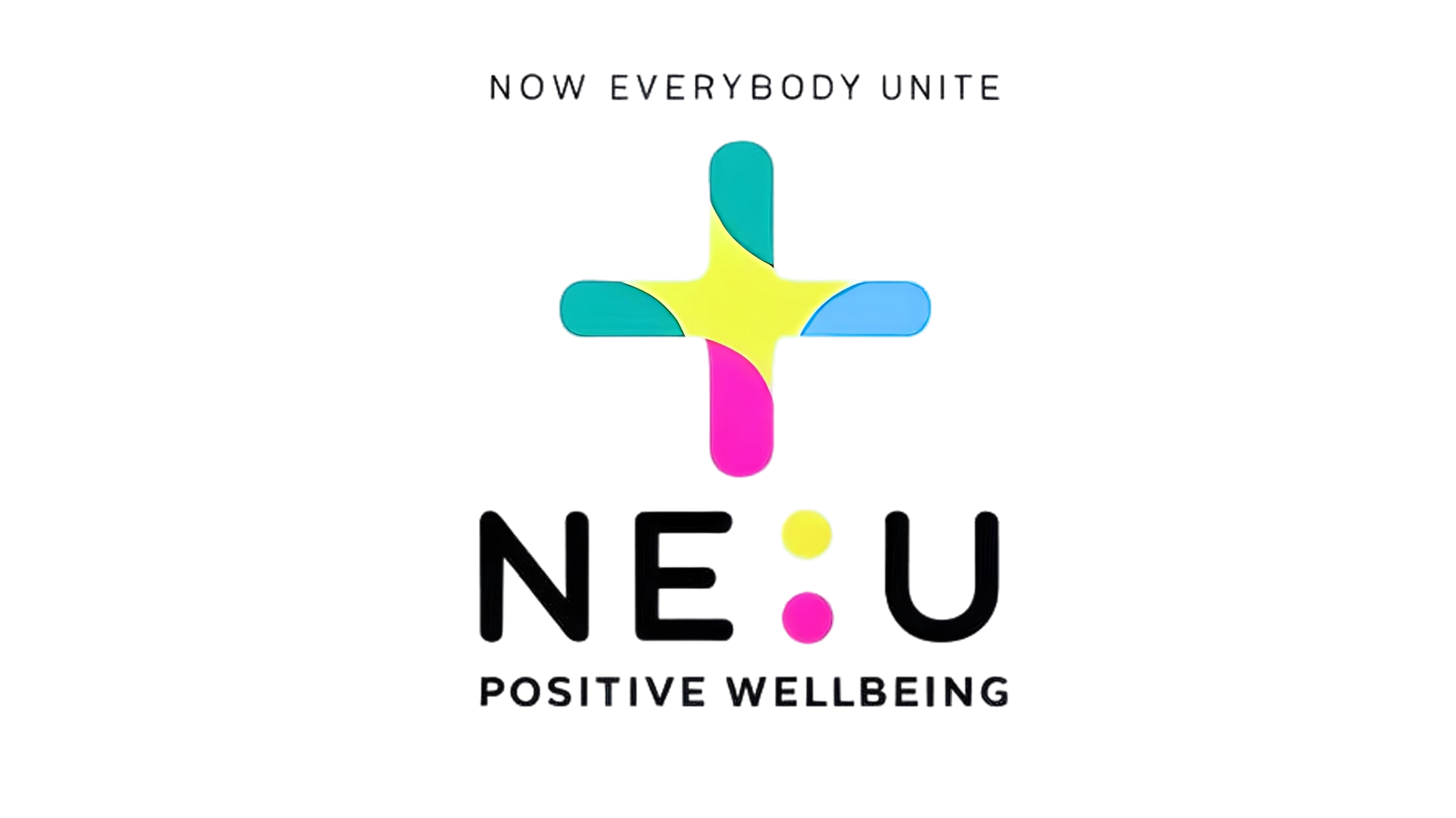Measuring What Matters
WEMWBS & The NEU Wellbeing Index (NWI)
Wellbeing should be measurable — but it should never feel medical. At NEU, we combine validated research with applied frameworks to turn wellbeing insight into structured, practical support.
Measurement is the starting point.
Support is the priority.
What is WEMWBS?
The Warwick-Edinburgh Mental Wellbeing Scale (WEMWBS) is a validated 14-item scale developed by the Universities of Warwick and Edinburgh. It measures positive mental wellbeing — how people are feeling and functioning.
At NEU, we use WEMWBS to establish baselines, track change over time, and evidence impact for organisations and funders.
What is the NEU Wellbeing Index (NWI)?
The NWI is a non-diagnostic wellbeing measurement tool designed to track change over time across six interconnected domains: Mental, Emotional, Social, Physical, Creative and Environmental wellbeing.
It is grounded in biopsychosocial models, positive psychology, the Mental Health Continuum, Maslow’s Hierarchy of Needs, trauma-informed practice, and neurodiversity-affirming principles.

NWI Methodology & Ethics
The Index consists of 12 statements (two per domain) rated on a five-point scale. Scoring prioritises domain-level patterns rather than labels. The tool is not diagnostic and is used to guide reflection, conversation, and safe signposting.
View Full Methodology & Implementation GuideThe NEU Wellbeing Index (NWI) is the intellectual property of NEU Wellbeing Ltd. All content, structure, questions, scoring logic, and interpretation frameworks are © NEU Wellbeing Ltd. The Index may not be reproduced, adapted, or redistributed without written permission, except where explicitly licensed. Organisations using the NWI do so under licence and must attribute the tool as: “NEU Wellbeing Index (NWI) © NEU Wellbeing Ltd – used with permission.”
WEMWBS (Warwick-Edinburgh Mental Wellbeing Scale) © University of Warwick. Used under licence. WEMWBS is a population wellbeing measure and is not a diagnostic instrument.



